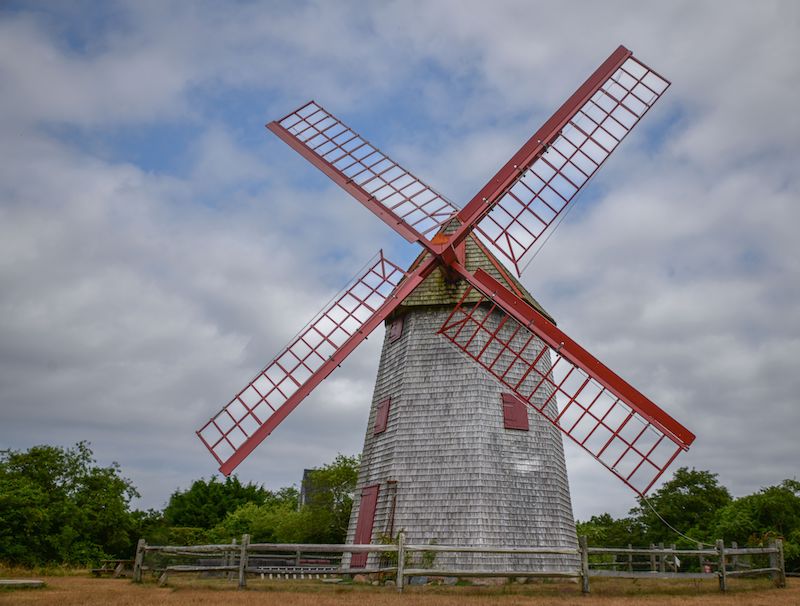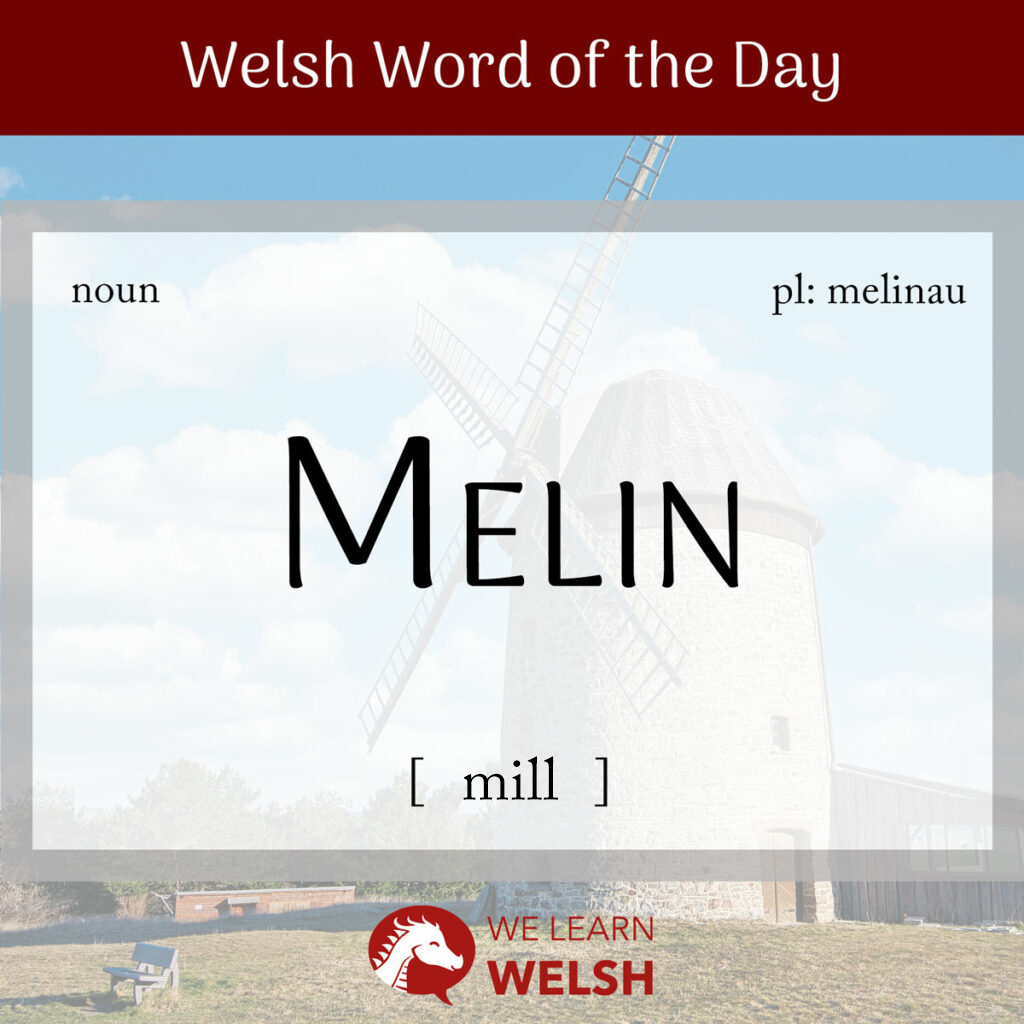A while ago, we learned about the word melyn (yellow), but today’s word of the day is melin. Melin is the Welsh word for mill – the two words are pronounced the same, but just one letter makes a big difference in meaning!
melin
mill
Melin (plural: melinau) comes from the Latin word molinum and is related to the English mill and the French moulin. It is a feminine noun and is susceptible only to the soft mutation. You will often see this mutated form because, being a singular feminine noun, melin undergoes the soft mutation after y (the); the mill translates as y felin.
Soft mutation
felin
Nasal mutation
N/A
Aspirate mutation
N/A
We use often use the word melin in the same way it’s used in English:
- melin wynt = windmill
- melin ddŵr = water mill
- melin flawd = flour mill
- melin bupur = pepper mill/pepper grinder
- melin draed = treadmill (lit. foot mill)
Mae’r melin wynt yn troi pan mae hi’n wyntog.
The windmill turns when it’s windy.
Fy rhieni (my parents) used to sing me a song about a melin as a little girl:
Tu ôl y dorth mae’r blawd,
Tu ôl y blawd mae’r felin,
Tu ôl y felin, draw ar y bryn,
Mae cae o wenith melyn.
Behind the loaf is the flour,
Behind the flour is the mill,
Behind the mill, over on the hill,
Is a field of yellow wheat.
I love this song because, as well as neatly demonstrating the difference between melin and melyn, it plays with two different meaning of tu ôl, or behind. Listening to my mam (mum) or tad (dad) sing, I used to dychmygu (imagine) the flour, the loaf, the mill, and the field all lined up neatly behind each other, moving from one colourful scene to the next in my mind’s eye.
But, similarly to in English, tu ôl can also mean behind as in the cause of or the origin of. I think this is probably the intended interpretation of tu ôl here, which becomes clearer in the second part of the song:
Uwchben y cae mae’r haul
Sy’n lliwio pob tywysen,
Tu ôl yr haul mae Duw
Sy’n rhoi y gwynt a’r glaw a’r heulwen.
Above the field is the sun
That colours every ear of corn,
Behind the sun is God
Who gives the wind and the rain and the sunshine.
I used to find the religious turn at the end surprising but, while writing this article, I discovered that this song was written by Nantlais, a Presbyterian gweinidog (minister) and a famous Welsh emynydd (hymn writer).
Melin also appears in many Welsh idioms:
- siarad fel melin bupur = to be very talkative (lit. to talk like a pepper grinder)
- troi’r dwr at dy felin dy hun = to turn something to your advantage (lit. to turn the water to your own mill)
- gwneud melin ac eglwys (also: gwneud môr a mynydd) = to make a mountain of a mole hill (lit. to make a mill and a church, to make a sea and a mountain)
- mynd trwy’r felin = to go through the mill, to have a hard time
- cyntaf i’r felin caiff falu = the early bird gets the worm (lit. the first to the mill gets to grind)
The last idiom contains the word falu, which is the softly mutated form of the word malu. Malu can mean to break/smash/shatter but in this context it means to grind, as in malu gwenith yn flawd (to grind wheat into flour). Malu comes from the same root as melin – you may have already worked this out from the shared m-l consonant pattern in the first syllable.
Malu shows up in several idioms itself:
- malu awyr = to talk nonsense/talk idly (lit. to grind air)
- malu cnau gweigion = to perform a thankless/pointless task (lit. to break empty nuts)
- malu ewyn = to foam at the mouth (lit. to grind foam)
- malu meddyliau = to entertain thoughts (lit. to grind thoughts)
Whatever you’re up to today, I hope you don’t mynd trwy’r felin and I hope you have time at the end of the day to relax and malu awyr with the people you love.


